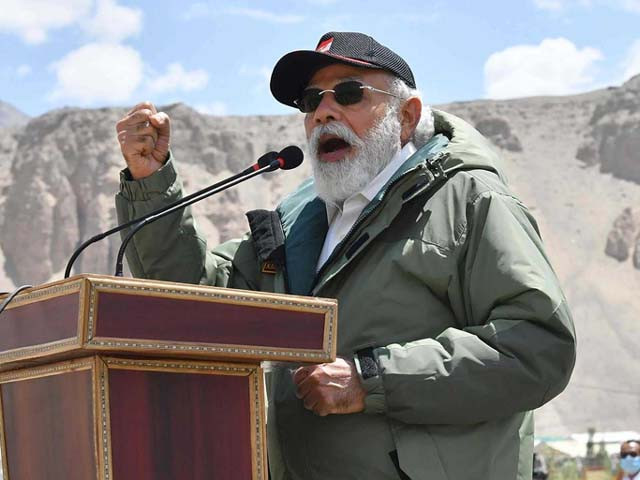Indian Prime Minister Narendra Modi claimed in June that “Nobody has intruded into our border, neither is anybody there now, nor have our posts been captured”, which he made shortly after the deadly Galwan Incident with China earlier that month. That assertion, however, has just reportedly been discredited by none other than an Indian intelligence source according to a report earlier this week from The Hindu. They quoted the unnamed official as saying that “the scale of Chinese control of India’s perception of the LAC stood at about 900 sq km.”
It’s well known that most Indian media outlets are under some degree of government influence so it’s curious that a member of its “deep state” (permanent military, intelligence, and diplomatic bureaucracies) is contradicting the prime minister. That individual probably didn’t “go rogue” but likely received authorisation from their superiors to “leak” this information to the press. This makes one wonder what this shadowy institution’s motivation might be to embarrass Modi in the manner that it did.
The most immediate hypothesis that comes to mind is that they want to exert pressure upon him to react more “muscularly” towards China. Incidents between the two along the Line of Actual Control (LAC) might therefore soon become the “new normal” in bilateral relations if this comes to pass. That would in turn advance the domestic and international interests that the author elaborated upon earlier this week in his analysis for CGTN about how there’s “More to India’s Latest Anti-China Provocation Than Just Territory”.
The second hypothesis that can be made about this curious report is that the Bharatiya Janata Party (BJP) wants to rally support for such a policy that it already decided upon and isn’t being pressured by the “deep state” to implement against its will. This interpretation takes for granted that the government regards its targeted domestic audience as stupid for lack of a better description insofar as it assumes they’re largely incapable of remembering what Modi previously said. This, too, is also a plausible explanation.
Whichever of the two that it is, the intended effect is to agitate the masses by provoking their nationalist impulses in order to get them to support a more aggressive military policy towards China, albeit one that’s disguised as “defensive” under the pretext of “liberating occupied territory”. It’s not a coincidence that this report was released shortly after news of the latest LAC incident along the Pangong Lake began to circulate, suggesting that the mastermind of this “perception management” operation intended to connect the two.
The impression that one’s left with after reading the report in light of the latest incident is that India was reacting “defensively” despite Chinese claims to the contrary. An editorial in China’s Global Times pointed out that the word “preempt” which was included in India’s statement on the matter “shows it was the Indian troops that first took destructive actions, and the Indian troops initiated the standoff this time.” That’s a logical interpretation of what probably happened, though India is loath to admit it.
Acknowledging its military aggression against China might earn it some praise from America, which has officially been its “comprehensive global strategic partner” since Trump’s visit over half a year ago in February, but it would also bolster Beijing’s case that it’s a victim of India’s regional expansionism just like Pakistan, Nepal, and the Kashmiris are. New Delhi can’t afford to have such truths become widespread out of fear that it’ll rightly undermine the South Asian state’s soft power, hence why it’s claiming that China seized parts of the LAC first.
In other words, India’s attempting to gaslight the world by carrying out acts of military aggression against China under the cover of “defending its territorial integrity”. It hopes to earn more support for its new “muscular” policy of trying to “contain” the People’s Republic through these means than if it openly admitted what it’s up to. Nevertheless, China wields tremendous influence nowadays and is more than capable of exposing the truth about India’s regional expansionism, which will in turn strengthen Beijing’s standing in South Asia.



COMMENTS
Comments are moderated and generally will be posted if they are on-topic and not abusive.
For more information, please see our Comments FAQ